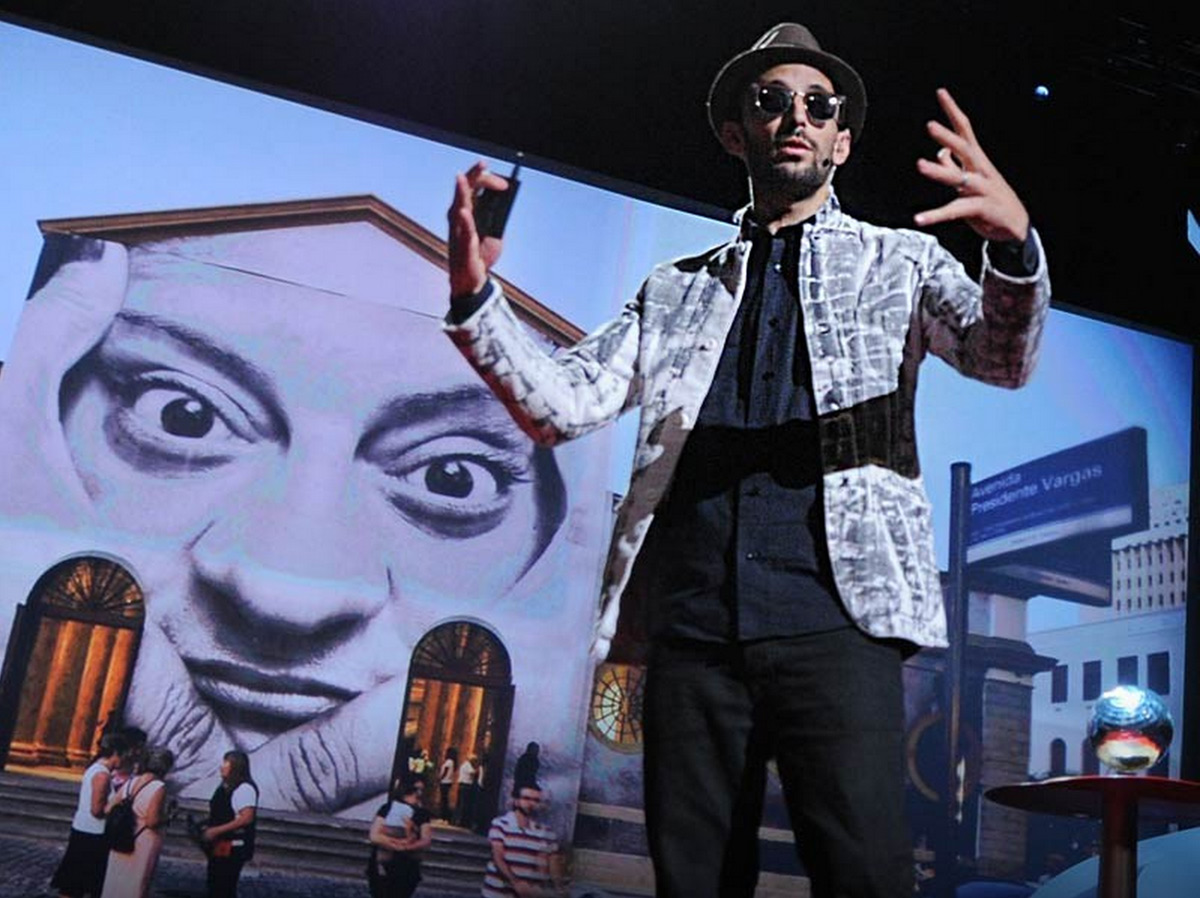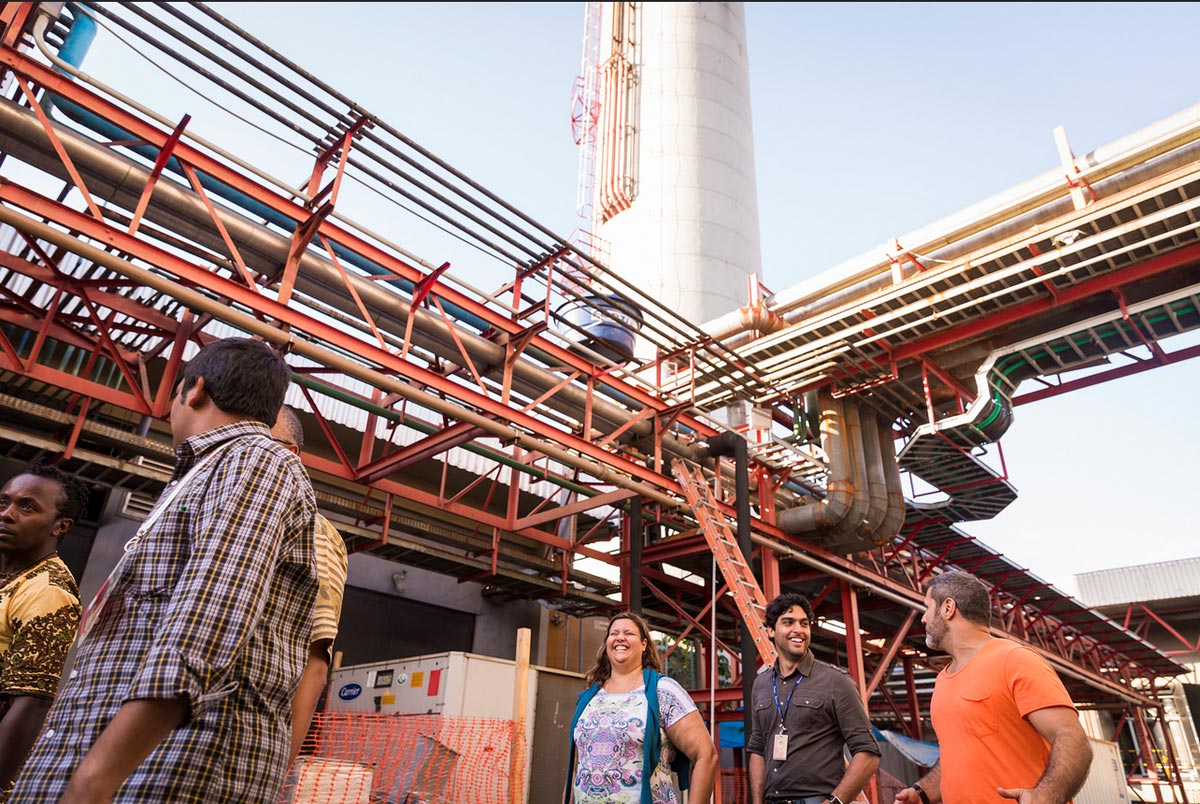TED Prize Honors StoryCorps’ David Isay
The documentarian speaks about listening, storytelling and our shared humanity

by Laura Feinstein

Since 2003, journalist, radio documentarian and MacArthur Fellow David Isay has helped bring attention to the daily and intricate lives of ordinary Americans with his groundbreaking oral history project StoryCorps. Oft-replayed on NPR, and archived at the Library of Congress, StoryCorps captures the beautiful, tragic and frequently moving conversations that make up the human experience—in the process collecting thousands of hours of intimate conversations held between lovers, family members, coworkers, friends and allies. An invaluable institution for cataloguing “how we live now,” StoryCorps is about to get a new infusion of much-deserved praise and attention with the recent announcement that Isay had been awarded this year’s much-coveted TED Prize.
Each year the non-profit group grants one exceptional individual the opportunity to conceive and launch a high-impact project—”a wish for humanity”—offered without restriction, and with the promise of $1 million in seed money. Past winners include culture icons like JR and Jamie Oliver, who have gone on to further their missions to benefit mankind. Recently CH was able to speak with Isay in his Manhattan office about the power of storytelling, what StoryCorps really is and his hopes for the future.

I think hopefully the power of these stories, when you hear one from someone who almost by definition is a stranger, is that you’re going to recognize yourself in that person.
Why are stories, and learning about the human experience, so important to society?
I actually think StoryCorps is much more about listening than telling the story. To me, listening is such an important way of letting other people know that their lives matter. In many ways, listening is the ultimate act of generosity to another human being. Through StoryCorps you’re asking, “What are the important lessons you’ve learned in life, and how do you want to be remembered?” That’s really what StoryCorps is about. And I think hopefully the power of these stories, when you hear one from someone who almost by definition is a stranger, is that you’re going to recognize yourself in that person. And in doing so, there’s an instant flash of recognition of our shared humanity—that there’s so much more we have in common than divides us. So the kind of storytelling we do is helping to build bridges between people by allowing us to be less fearful of one another.
What do you think of the appropriation of “Storytelling” as a buzzword in advertising, marketing and even retail?
I hadn’t realized that was the case, but I think it’s fine if people have good intentions. For me a powerful story is when there’s honesty going in; when it’s not about making money, or getting famous, then you have the makings of something powerful. So I think it’s great as long as the intentions are correct. Obviously, I do know about reality TV, and clearly it can have a corrosive effect on the culture if it’s not done with respect. Really it’s a question of are you “with” someone, or are you on the outside gawking? Or are you trying to be sold something? Those are really the lines between valuable and not valuable storytelling.

What drove you to start StoryCorps? Was it a need for that genuineness?
Yes, StoryCorps is all about two people having this conversation, and the microphone gives you the license to ask questions you normally wouldn’t be able to. I’d been making radio documentaries for many years before starting StoryCorps and came to believe that just the act of being asked questions can be powerful. I saw, doing social justice in housing projects, prisons and homeless shelters, that there is a change when you ask questions in a respectful way. You can ask, “what do you want the world to know about you?” and just literally see people’s backs straighten. It can be a truly informative moment in their lives. And that was one of the reasons for starting StoryCorps, and continues to be till this day. If you were to sum up StoryCorps in one line it’s “every life matters.” That’s what StoryCorps is all about, and hopefully it reminds people in the [recording] booth of that truth.
The collaboration you have with the Library of Congress is interesting. How did that come about?
I had been going to the American Folk Life Center, where all of the country’s great reported and recorded oral histories had been stored from programs like the WPA in the 1930s and ’40s. I called the person who was running the American Folk Life Center at the time and told them we needed an archive partner, and that I wanted this to be the imprimatur library of America. I called and said, “I have this idea, will you accept it at the Library of Congress?” They said yes, and it was game on from there. I’ve been fortunate to have a lot of people around me that have said yes to this crazy idea that I had a bunch of years ago—and continue to say yes today.

Can you tell me a little bit more about StoryCorps U? (The interactive, pre-college curriculum for high-needs schools that utilize StoryCorps content and interviewing techniques to engage young people.)
This is our newest program, and one that I’m really excited about. I think it has huge potential. It is a yearlong program where we’re working with about a thousand students, in five cities across the country, and in some of the most high-need schools in America. Our students are almost 100% minorities. It basically uses StoryCorps’ content and teaches interviewing to both help kids understand the power of their own voices, and for teachers to understand who their students are better. It’s been very positive. We’re doing a lot of research and I think it has potential on several fronts, especially in terms of “school connectedness”—which is essentially students feeling like they are a part of their learning institutions and understood. I think that is very important for future successes academically, and we’re seeing very encouraging results. Students really enjoy coming to StoryCorps once a week with teachers.
The program is focused on 9th and 10th graders, and we’re getting ready to scale. Right now StoryCorps has two legs to this stool. One is access to the experience through the interviews, and one is the content or the stories we create, as well as the videos. I imagine if we look back in ten years the third leg of the stool will be this project. I think this may be the first credible curriculum to come out of the sphere of public radio, and public radio has so much to do, obviously, with education. So I think it’s very great to be doing this service.
Can you tell me a little bit about what you’ll be discussing at the TED2015 Conference in Vancouver?
That I cannot talk about, but hopefully people will tune in in March to see what the wish is!
For Isay’s seven most memorable StoryCorps stories visit the official TED blog. To learn more about the Isay’s TED Prize wish and his speech, keep checking for updates at the TED site or watch the video.
Images courtesy of TED












